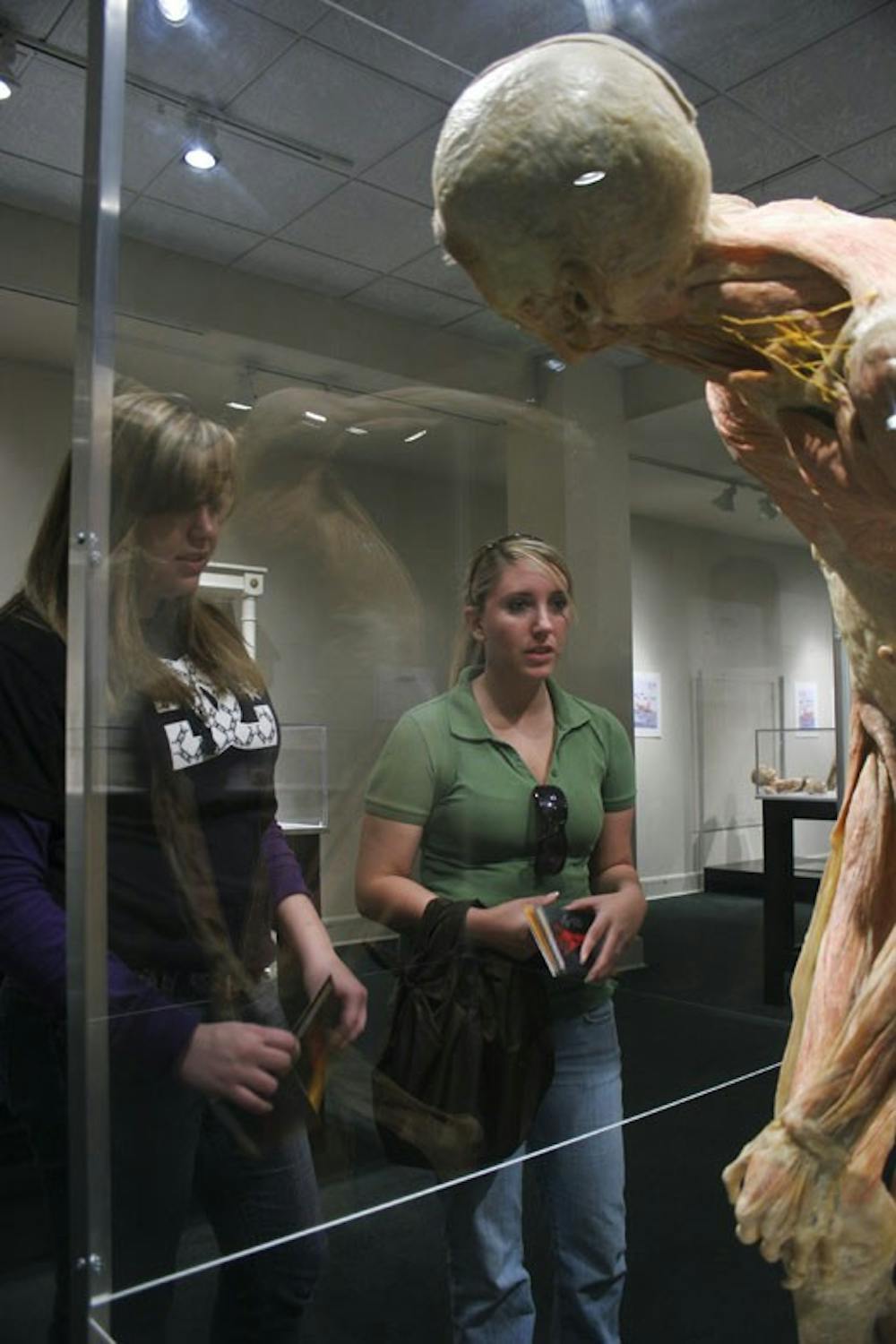Plasticized human corpses will be on display inside Coronado Center through May.
But a group of UNM medical students says it will protest the exhibit because it's unethical.
The exhibit will showcase human bodies that have been plasticized - a rubberization process that replaces the body's water and fatty material with plastic - and dissected so organs can be placed on display.
Medical students Amanda Lo, Jennifer Hunt and Gabriel Palley have been circulating petitions on North Campus since Friday and have collected 149 student and faculty signatures. They plan to present the petition to Coronado Center's management during the protest Saturday.
Lo said Lynx Industries, the company behind the exhibit, violates medical ethics by displaying people's bodies without their consent.
She said it's suspicious that almost all the bodies on exhibit are of Asian descent.
Get content from The Daily Lobo delivered to your inbox
"There are strong suspicions that the bodies are coming from China," Lo said. "And China has weak paper trails, and they execute 2,000 to 3,000 people a year. And they have a known black market for organ trades."
Chester Hockersmith, manager of the exhibit, said Lynx Industries did not get the bodies unethically.
"That is one thing that we made sure of - that Lynx made sure of when the exhibit was purchased - was that none of the bodies came from China," he said. "Now, they are of Asian descent, yes, but the bodies were provided to us by a laboratory in Michigan that supplies for medical needs also."
Hockersmith said the bodies were unclaimed and would have been incinerated.
Lo said Lynx Industries couldn't display the bodies in a museum, because the company lacked proper documentation for the unclaimed bodies.
"At most, this unclaimed business is the same as body snatching," she said.
Hockersmith said the company chose Coronado Center because of the high volume of people the mall can support.
"What we're trying to do is educate the little towns that typically wouldn't have one of the larger exhibits come through with the exhibit that we have," he said. "If you come to ours compared to some of the others, it's more of an educational experience and not so much with an artistic flare or anything like that."
Student Andrea Greenlee said she enjoyed the exhibit.
"The plastination is a little weird," she said. "It looks a little off for what you'd expect it to look like. They don't really look like people so much."
Palley said the protest is just the first step in a long campaign for the next three to four weeks.
The students plan to appeal to city legislators and local churches to sign the petition, he said.
"We know that we're going to have to put a lot of pressure on them, because they stand to make a lot of money," he said. "The point we're trying to make is that when we're dealing with something as precious as human life, we should know where it's coming from."
Jennifer Olson contributed to this article.






